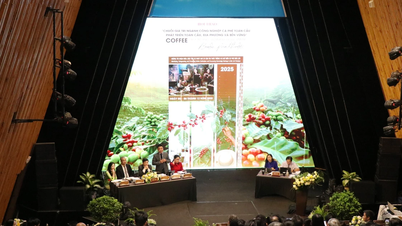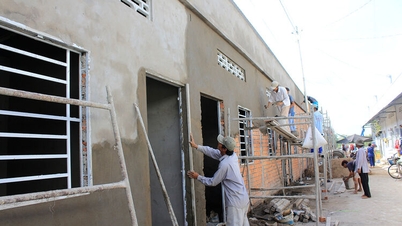The Ministry of Finance is drafting the second draft of the Decree Amending and supplementing Point d, Clause 2, Article 5 of Decree No. 132/2020/ND-CP dated November 5, 2020 of the Government regulating tax management for enterprises with related-party transactions.
Point d, Clause 2, Article 5 stipulates: “An enterprise guarantees or lends capital to another enterprise in any form (including loans from third parties guaranteed by the financial resources of the associated party and financial transactions of similar nature) on the condition that the loan amount is at least equal to 25% of the capital contribution of the owner of the borrowing enterprise and accounts for more than 50% of the total value of the medium and long-term debts of the borrowing enterprise”.
In the latest draft, the Ministry of Finance has agreed to amend and supplement Point d, Clause 2, Article 5, thereby excluding the determination of affiliated relationships in the case of credit institutions and other organizations with banking functions. This is a notable change in the draft.

Having suggested that the determination of affiliated relationships should be excluded for the case of credit institutions, sharing with PV. VietNamNet about this revision, Mr. Chung Thanh Tien, the Accounting Association Understand Correctly - Do Correctly (Ho Chi Minh City Accounting Association) expressed his agreement.
“Banks are not affiliated with businesses - this is indisputable. Banks are money dealers, and businesses come to banks to get loans,” Mr. Tien affirmed.
However, the draft only mentions amending point d, clause 2, article 5. Meanwhile, many businesses proposed raising the limit on deductible interest expenses from the current 30% to 50%, but the draft amending Decree 132 has not mentioned it.
The regulation on controlling interest expenses originates from Action Plan No. 4 of the total 15 Action Plans on Base Erosion and Profit Shifting (BEPS) of the Organization for Economic Cooperation and Development (OECD). This is considered one of the solutions to limit the abuse of thin capital, abuse of internal financing/financial financing among members of multinational corporations for the purpose of tax avoidance.
Mr. Chung Thanh Tien said: OECD has set a rate of 30%, but on that basis, the Ministry of Finance is still putting Vietnamese enterprises on par with enterprises in G20 countries. G20 countries are countries with stable economies and healthy enterprises, so they do not need to borrow much capital to invest.
Meanwhile, Vietnamese enterprises are "running for their money day by day", still having to use financial leverage to have capital to invest in business. They accept the huge risk of mortgaging assets to borrow money to do business. Thus, they want this part of the borrowing cost to be deducted when calculating corporate income tax.
“The policy’s goal is to limit the situation of thin capital, but Vietnamese enterprises are rarely well-capitalized. If we want enterprises to have thick capital, we must create conditions for them to invest in production and business, and gradually they will develop.
For example, a business has a new business idea, they want to have a product on the market, they need to borrow capital. They need time to research and develop, 3-5 years may not be able to release the product. During that period, all interest expenses for business activities of the business (not capitalized) are excluded when calculating corporate income tax, so where will they get money to continue investing? Therefore, this 30% control regulation does not encourage small businesses to grow," Mr. Tien analyzed.
Although this regulation also has the effect of preventing the situation of "catching a thief with bare hands", but according to experts, businesses do not have money so they have to borrow. Therefore, the management agency should choose another management method, should not set a limit on borrowing costs because that will cause difficulties for businesses.
“The drafting agency needs to consider increasing the ceiling to create conditions for businesses to develop. In my opinion, the Ministry of Finance should completely remove this control level because it is unnecessary. If businesses make a profit, they will increase their tax payments to the budget. It is not necessary to block it from the beginning like that,” Mr. Chung Thanh Tien suggested.
An accounting expert commented: In previous years, the 30% control level was considered reasonable in the context of stable interest rates at a low average level. However, from 2022 to mid-2023, the average lending interest rate was continuously kept at a high level, ranging from 8% to 10.7%, causing the interest expenses of many businesses to exceed the 30% control level.
In the current context, many businesses have recorded very low EBITDA results ( an index reflecting earnings before interest, taxes and depreciation ), and in many cases, negative EBITDA. Therefore, most of the interest expenses incurred during the period will not be deducted for corporate income tax purposes, causing businesses to fall into a "difficult situation".
Therefore, raising the interest expense control ratio from 30% to a higher level, such as 50% of EBITDA to match the actual situation of businesses in difficult economic times. This will help businesses reduce financial burden and have more opportunities to reinvest.

Source: https://vietnamnet.vn/bo-tai-chinh-sua-quy-dinh-ve-giao-dich-lien-ket-dieu-ban-khoan-con-bo-ngo-2292465.html













































































































Comment (0)